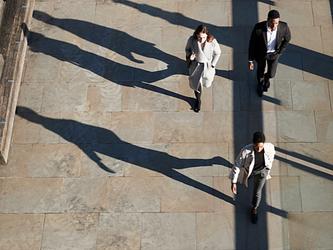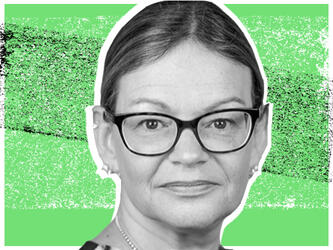Planning fast and slow
In his famous book of 2011, Thinking fast and slow, Daniel Kahneman introduced us to two concepts. He unpicked the way we make decisions, choices and judgements, arguing that essentially, this breaks down into two systems.
Decisions made using system one are fast and automatic, done almost entirely instinctively and generally much more emotional in nature. System two on the other hand is slow and deliberate – and choices are usually more complex and more mentally draining.
It’s not binary however, we don’t make decisions using one or the other exclusively. Kahneman argues in the course of his book that you actually need both systems to operate together to make good, effective decisions; one without the other will not work.
System one is predisposed to jumping to conclusions with limited evidence, and it is also likely to make predictions and assumptions about the future without assessing the evidence. Most of the time we rely on system one, as otherwise we would face choice overload and be overwhelmed. We don’t, however, rely on it exclusively – it is best when it is supported by system two; our more rational thought and conscious decision-making. System two is better suited to problem-solving and intense analysis.
Re-reading some of Kahneman’s book recently made me think about how we do media planning today. When you read award entries or stories of pitch-winning ideas, the kind of words often used are agile, nimble, always on. There is a sense of urgency, a speed in planning, something that is seen as a virtue. I’ve also observed that there is a lot of fast planning going on and endless amounts of plans.
In some research we did with planners recently, there were references to 100+ plans a year, that’s more than two a week. Often planning for significant amounts of money is completed in no time at all. Recently a business director was telling me about how he’d been asked to plan £1.5m for a client in just two hours.
I would hazard a guess that almost all of this fast planning is done using system one. If so, are we really coming up with the best solutions if we just focus on system one? And how can we incorporate system two thinking into our planning?
It’s not that we always need to do both at the same time, but to plan fast, we need to have built in some slow time throughout the year; time to assess evidence, to investigate what’s out there, to build a picture of consumers based on robust research (and not just on gut instinct, or a sense of what seems to be the latest, trendy new thing).
Orlando Wood, chief innovation officer at System 1 said at the IPA’s EffWeek recently that “we process long-term stuff to be able to make decisions in the moment”. We take time to process the evidence that comes from research so that we can plan fast when we need to.
And there is lots of evidence out there to be assessed. At Newsworks we spend a lot of time on independent research looking at the role of newsbrands in a multi-media campaign – what’s the right amount to spend on newsbrands to ensure optimum return for the campaign, where do they fit in people’s journey to purchase and so on.
I wonder also, if we could learn from some of the cultural trends that we are seeing today? This way of working so fast is in stark contrast to an increasing focus in personal lives on slowing down, on mindfulness, on meditation, on digital detox. We could learn a lot from this.
The Scandinavians seem to be very good at it. We all read about hygge, the Danish approach to slowing down, to appreciating the good things in life. I recently went on a work trip to Stockholm and in the hotel I was staying in, they ran meditation sessions at 5pm every day on cushions on netting suspended above the lobby – I must say it was very effective.
So in a media world that is increasingly moving at lightning pace, let’s take some lessons from the Scandinavians, let’s build in time for some slow planning in order to allow us to plan fast much more effectively when we need to. There’s a reason that Kahenman’s book wasn’t called ‘Thinking fast'.
Denise Turner is insight director at Newsworks

We hope you enjoyed this article.
Research Live is published by MRS.
The Market Research Society (MRS) exists to promote and protect the research sector, showcasing how research delivers impact for businesses and government.
Members of MRS enjoy many benefits including tailoured policy guidance, discounts on training and conferences, and access to member-only content.
For example, there's an archive of winning case studies from over a decade of MRS Awards.
Find out more about the benefits of joining MRS here.













1 Comment
Paul Williams
7 years ago
Can't stop looking at the picture, and it's driving me crazy because it's been reversed or all those people are driving the wrong way down the motorway!
Like Reply Report